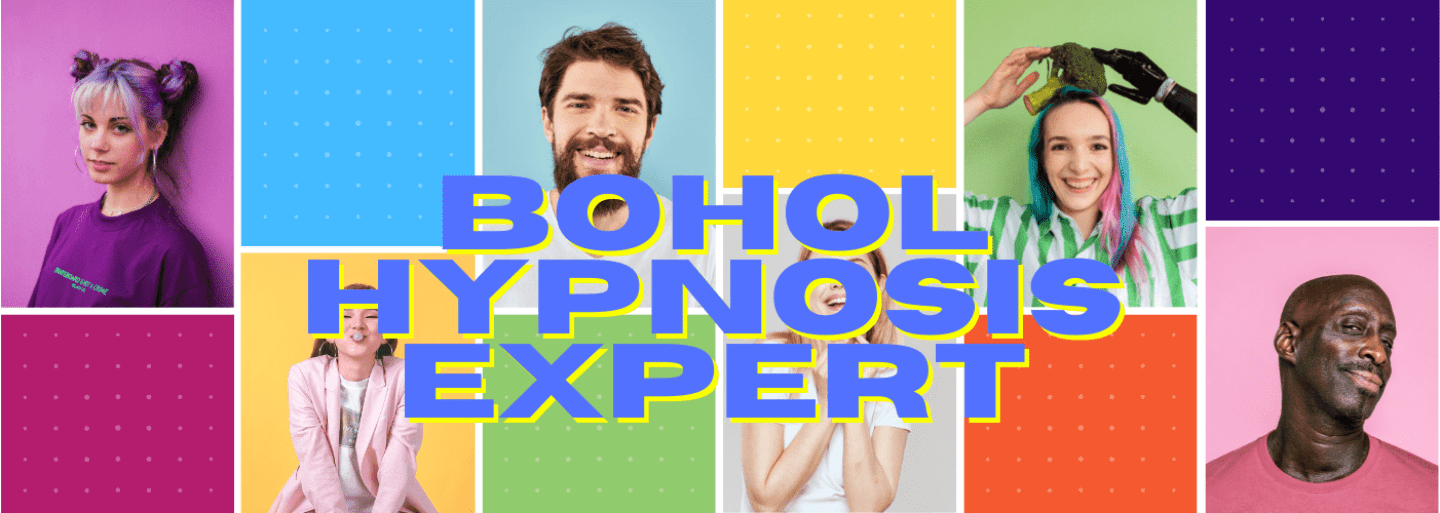
Using Hypnosis for Allergies
Hypnosis is a powerful tool for managing physical and psychological conditions, and allergies are no exception. Many are using hypnosis for allergies. People are unaware that hypnosis can be used to help alleviate allergy symptoms, yet this alternative therapy has been proven to be effective for those seeking relief.
Are you plagued by allergies that just don’t seem to get better? Have you tried numerous medications, nasal sprays, and other treatments, only to still have symptoms?
If so, you may want to consider hypnosis as a potential solution. Imagine being able to simply relax, and have your allergies disappear. That’s what hypnosis can do. See how hypnosis will find your greatest secret power.
Have you ever heard of hypnosis being used to treat allergies? If not, you’re not alone. While some people may be skeptical of this unconventional therapy, research has shown that hypnosis can successfully reduce allergy symptoms by helping to reprogram the brain’s response to allergens.
Through a combination of positive suggestion and relaxation techniques, hypnosis can help to reduce the body’s physical reaction to an allergen, resulting in fewer and less severe symptoms.
1. What Is Hypnosis?
Hypnosis is a mental state characterized by intense focus and relaxed awareness. It is a natural state of mind which can be used to help people make positive changes in their life. It has been used for centuries to help people with physical and psychological problems.
Hypnosis is an altered state of consciousness, in which the person’s attention is focused on a specific suggestion or thought. During the hypnotic state, the person’s conscious mind is bypassed and the subconscious mind is accessed. The subconscious mind is the part of the brain that is responsible for our beliefs, memories, and behaviors.
The hypnotic state enables the person to become more open to suggestions that can help them make positive changes in their life. For example, hypnosis can be used to help people overcome fears and phobias, reduce stress and anxiety, and manage chronic pain.
It can also help people make healthy lifestyle changes, such as quitting smoking or losing weight.
In the context of allergies, hypnosis can be used to help people gain control over their reactions to allergens. By accessing the subconscious mind, the person can be given suggestions to help them reduce their physical reactions to allergens. This can help them manage their allergies in a more effective manner.
2. How Can Hypnosis Help Alleviate Allergy Symptoms?
Hypnosis is a powerful tool that can be used to help alleviate allergy symptoms. Hypnosis can be used to change the way the body reacts to allergens, helping to reduce the severity of symptoms. Hypnosis can also provide relief from stress and anxiety, which can aggravate allergy symptoms.
The goal of hypnosis for allergies is to retrain the body’s response to allergens. This can be done by using relaxation techniques to calm the nervous system and reduce the body’s allergic response.
The hypnotherapist will then help the patient to create a mental image that is associated with the calming of the reaction. This image is then used to help the patient to remain calm and relaxed when exposed to the allergen in the future.
Hypnosis can also be used to help the patient to manage their stress levels. Allergies can often be exacerbated by stress, so reducing stress can help to reduce allergy symptoms.
Hypnosis can help to relax the body and mind, leading to a reduction in stress levels. Hypnosis can also help to create positive thought patterns, which can help to reduce stress levels.
Hypnosis can also be used to encourage positive lifestyle changes that can help to reduce allergy symptoms. For example, hypnotherapy can help to encourage healthy eating and regular exercise, which can help to reduce inflammation and improve the body’s overall health.
Hypnosis can also help to reduce the use of medications, which can help to reduce the severity of symptoms.
Overall, hypnosis can be an effective tool for reducing allergy symptoms. By using relaxation techniques to reduce the body’s response to allergens, managing stress levels, and encouraging lifestyle changes, hypnosis can help to alleviate allergy symptoms.
3. Identifying The Root Cause Of Allergies
Identifying the root cause of allergies is one of the first steps in using hypnosis to treat them. Allergies can be caused by a variety of factors, including environmental, genetic and lifestyle factors, and it is important to identify the underlying causes of a person’s allergies in order to determine the best course of treatment.
First, the patient must be assessed to determine what type of allergy they have and the triggers that may be causing it. This can be done through skin prick tests, blood tests, and other assessments. During the assessment, the practitioner will ask questions about the patient’s medical history and lifestyle in order to identify any potential triggers.
Once the underlying cause of the allergies has been identified, the practitioner can then focus on helping the patient to better manage their allergies through hypnosis. Hypnosis can be used to help the patient to identify and manage their triggers, and to learn techniques to cope with their symptoms.
Finally, hypnosis can be used to help the patient to develop a positive attitude towards their allergies. This can help them to accept their condition and to make the most of the treatment options available.
By helping the patient to develop a positive attitude towards their allergies, the practitioner can help them to take control and to find ways to reduce their symptoms and improve their overall quality of life.
4. Preparing For A Hypnosis Session
The fourth step in using hypnosis for allergies is preparing for a hypnosis session. Preparation for hypnosis is important to ensure it is successful. Before the session begins, it is important to discuss the goals of the session with the hypnotherapist.
The hypnotherapist will then provide instructions on how to prepare for the session.
The hypnotherapist may suggest that the client find a quiet, comfortable place to relax before the session. This will create an environment conducive to relaxation and help to focus the mind.
It is also important to make sure the person is feeling relaxed and comfortable before the session begins.
The hypnotherapist may also provide suggestions on how to relax during the session. This may include breathing exercises, visualization techniques, or progressive muscle relaxation. These techniques will help to create a relaxed state of mind and body, which is beneficial for successful hypnosis.
Finally, it is important to discuss the hypnotherapist’s expectations for the session. It is important to know what the expectations are and how the hypnotherapist will help the client achieve the goals of the session.
This will help ensure that the session is as effective as possible. By taking the time to prepare for the session, the client can ensure that the hypnosis session is successful.
5. Steps To Take During A Hypnosis Session
The first step to take during a hypnosis session for allergies is to find a qualified hypnotherapist. It is important to make sure that the therapist is certified and has experience dealing with allergies. It is also important to ask questions about the hypnotherapist’s methods and qualifications.
The second step is to be open and honest about your allergies and feelings about them. It is important to share your experiences and feelings about your allergies. This will help the hypnotherapist to determine the best approach to use during the session.
The third step is to relax and focus on your breathing. This will help you to become more receptive to the suggestions that the hypnotherapist will be providing.
The fourth step is to be receptive to the hypnotherapist’s suggestions. The hypnotherapist will provide suggestions that will help you to become more aware of your allergies and to make changes to your behavior that will help you to manage your allergies more effectively.
The fifth and final step is to practice self-hypnosis. This can be done by practicing the suggestions that were provided by the hypnotherapist and using them in your daily life. This will help you to become more aware of your allergies and to make changes to your environment and behavior in order to reduce your allergies.
6. Hypnosis Safety Considerations
Hypnosis is widely considered to be a safe and effective method of treating allergies, but there are still important safety considerations to keep in mind. Before engaging in hypnosis, it is essential to consult with a licensed mental health professional who has the appropriate experience and training in the use of hypnosis.
This is important to ensure that the individual receiving the hypnosis is comfortable with the process and can trust the practitioner.
It is important to remember that hypnosis is not a substitute for medical care, and it should not be used in place of treatments prescribed by a doctor. Individuals should always follow their physician’s instructions for managing allergies and should never try to self-medicate or use hypnosis as a replacement for medication.
When engaging in hypnosis, it is important to ensure that the individual remains in control of the process. Hypnosis is a voluntary process, and the individual should have the ability to stop the process at any time if they become uncomfortable.
It is also important to ensure that the individual is not coerced into participating in hypnosis, as this could lead to an unpleasant experience.
Finally, it is important to be aware of potential side effects of hypnosis. These may include nausea, dizziness, headache, and fatigue, though these are typically mild and should subside within a few hours.
If any of these symptoms persist, it is important to seek medical attention. Additionally, individuals should be aware of the possible psychological effects of hypnosis, such as increased anxiety, confusion, and a feeling of being overwhelmed. In these cases, it is important to seek the help of a mental health professional.
7. Tips For Maximizing The Effectiveness Of Hypnosis For Allergies
1. Find a Licensed Hypnotist:
Working with a licensed hypnotist is essential to ensuring that the hypnosis session is conducted in a safe and professional manner. A good hypnotist will be able to assess the individual’s needs and create a tailored hypnosis session to best address those needs.
- Discuss Allergies with the Hypnotist:
It is important to discuss your allergies with the hypnotist before the session begins. This way they can tailor the session to best address the individual’s needs and provide the most effective hypnosis treatment.
- Open Your Mind to Hypnosis:
To maximize the effectiveness of the hypnosis session, it is important to be open to the hypnosis process. Relaxing, letting go of any preconceived notions, and trusting the hypnotist are all key to ensuring that the session is effective.
- Follow the Hypnotist’s Instructions:
During the session, it is important to follow the instructions given by the hypnotist. This will help to ensure that the hypnosis is effective and that the individual is able to get the most out of the session.
- Focus on Positive Thoughts:
During the session, it is important to focus on positive thoughts and feelings. This will help to reinforce the hypnosis and ensure that the individual is able to get the most out of the experience.
- Journal Your Experiences:
Writing down the experiences and thoughts during the session can help to reinforce the hypnosis and maximize the effectiveness of the hypnosis session.
- Practice Self-Hypnosis:
Practicing self-hypnosis at home can help to reinforce the hypnosis session and help to keep the individual focused on their treatment goals. Self-hypnosis can help to create a new and more positive mindset which can help to combat
Finding A Qualified Hypnotherapist
Finding a qualified hypnotherapist is an important step in using hypnosis for allergies. Before beginning treatment with hypnotherapy, it is important to know that the therapist has the proper qualifications and experience to treat the condition. In the Philippines? View the Bohol Hypnosis Expert, online sessions are available for hypnosis services and life coaching.
It is important to research the credentials and qualifications of a hypnotherapist before beginning treatment. A qualified hypnotherapist will typically have a degree or certification in a field such as psychology or psychotherapy, and some may also have additional certifications in hypnotherapy from an accredited organization.
It is also important to look for a hypnotherapist who specializes in treating allergies, as this will ensure that the therapist has experience in this area.
In addition to researching qualifications and credentials, it is important to speak with the hypnotherapist before beginning treatment. This will allow the patient to get a better understanding of the therapist’s approach to treatment and the techniques they will use.
It is also important to ask questions about the therapist’s experience in treating allergies and the success rate of their treatments.
Finally, it is important to find a hypnotherapist who is comfortable to work with. The patient should feel comfortable talking to the therapist and should be able to trust them to provide the best treatment. This can be determined through talking with the therapist and asking questions about their approach to treatment.
Common Misconceptions About Hypnosis And Allergies
Misconception #1: Hypnosis will make allergies worse.
This is simply not true. While hypnosis can be used to explore allergies and their triggers, it cannot make allergies worse. In fact, hypnosis can be used to help people learn to manage their symptoms and reduce the severity of their allergies.
Misconception #2: Hypnosis is not a real medical treatment.
In reality, hypnosis has been used for medical treatments since the early 19th century. It has been used to treat a range of conditions, including allergies. It is a safe, non-invasive treatment that has been proven to be effective in helping people manage their allergies.
Misconception #3: Hypnosis is only used for severe allergies.
Hypnosis can be used to treat both mild and severe allergies. It is a safe, non-invasive treatment option that can help people to better manage their allergies and reduce their sensitivity.
Misconception #4: Hypnosis will make people more susceptible to allergies.
Hypnosis will not make people more susceptible to allergies. In fact, hypnosis can be used to help people manage their allergies and reduce their sensitivity to allergens. It can also be used to help people identify and manage their triggers more effectively.
Long-Term Benefits Of Hypnosis For Allergies
Hypnosis has been gaining traction in recent years as an effective treatment for a variety of ailments, including allergies. While most treatments have short-term benefits, hypnosis has the potential to provide long-term relief from allergy symptoms. Here are 10 of the long-term benefits of hypnosis for allergies.
Firstly, hypnosis can help to desensitize the body to allergens, which can reduce the severity of symptoms over time. This is because hypnosis can help to reduce the stress response to triggers, which can reduce the body’s physical reaction to allergens.
Secondly, hypnosis can help to boost the body’s natural healing processes. Hypnosis has been found to reduce inflammation and improve the body’s immune response, which can help to reduce the occurrence of allergy symptoms.
Thirdly, hypnosis can help to identify and address any underlying psychological causes of allergies. This can help to reduce the likelihood of future allergies, as well as reduce the severity of current symptoms.
Fourthly, hypnosis can help to reduce stress levels and improve mental wellbeing. Allergies can be both physically and psychologically draining, and hypnosis can help to reduce stress levels and improve overall mental health.
Finally, hypnosis can help to improve the quality of life for those with allergies. By reducing the severity of symptoms and improving mental wellbeing, hypnosis can help to ensure that allergies do not interfere with everyday life.
Hypnosis can provide long-term benefits for those suffering from allergies. It can desensitize the body to triggers, boost the body’s natural healing processes, identify and address underlying psychological causes, reduce stress levels, and improve the quality of life.
What Is Hypnosis And How Does It Work?
Hypnosis is an altered state of consciousness in which a person is highly responsive to suggestions and can access memories and feelings that are usually inaccessible in a conscious state. It has been used for centuries to treat various medical conditions, and recently, it has been used to treat allergies.
The hypnotherapist helps the person to relax and focus their attention on their inner experience. Through verbal guidance and suggestion, the hypnotherapist helps the person to enter a trance-like state where they are highly suggestible. During this state, the person is able to access their unconscious mind, which is a powerful tool for healing.
In the context of allergies, the hypnotherapist can use hypnosis to help the person access and process underlying emotional issues that may be contributing to their physical symptoms.
For example, the person may have a fear or anxiety about certain allergens that is triggering the physical response. By accessing these emotional issues, the person can begin to process and work through them so that they no longer trigger the physical response.
In addition to helping the person process underlying emotional issues, hypnosis can also be used to help the person create new responses to allergens. For example, the person can use hypnosis to create a new physical response to allergens that is not as severe as their old response.
This can be done by replacing the negative associations the person has with allergens with positive ones.
Overall, hypnosis is a powerful tool for helping people to manage their allergies by accessing and processing underlying emotional issues and creating new physical responses.
Does Hypnosis Really Help With Allergies?
Hypnosis has been suggested as a potential treatment for allergies, leading many to wonder whether this method of treatment is reliable.
One study examined the effects of hypnosis in treating allergic rhinitis and found that it could reduce sneezing, itchy eyes, and nasal obstruction. Participants in the study also reported a decrease in their overall symptoms. This indicates that hypnosis may be an effective form of treatment for allergies.
However, these results may not be reliable. The study was small, with only 25 participants. As a result, the results may not be generalizable to the wider population. Additionally, the study did not compare hypnosis to other forms of treatment, making it difficult to determine if hypnosis is more effective than other treatments.
Overall, there is not enough evidence to definitively say that hypnosis is effective for treating allergies. More research is needed to explore the potential of hypnosis in this area. Until then, it is important to speak to a doctor about the best treatment for allergies.
How Long Does It Take To See Results From Hypnosis?
Hypnosis has been found to be a successful treatment for many forms of allergies, particularly those with a psychological element. It can be an effective way to alleviate or even eliminate the symptoms of an allergy, while also addressing the underlying psychological cause.
However, it is important to note that hypnosis is not a quick fix. How long it takes to see results from hypnosis depends on the individual, their commitment to the treatment, and the severity of the allergy.
In general, a course of hypnosis typically takes between six and twelve sessions, and it can take several weeks or even months to get full relief from symptoms.
The hypnotherapist will work with the patient to create a tailored plan that meets their specific needs and goals. During the sessions, the patient will be guided into a relaxed, trance-like state and given positive suggestions to help them overcome their allergies.
The hypnotherapist will also help the patient to identify and address any underlying psychological issues that may be contributing to their allergies.
Overall, hypnosis can be a very effective treatment for allergies, and many people have found relief from their symptoms after just a few sessions. However, it is important to remember that it can take several weeks or months to see full results from hypnosis, and it is important to work closely with a qualified hypnotherapist in order to get the best results.
Is Hypnosis Safe And Are There Any Risks?
Hypnosis is generally considered to be a safe and natural therapy. It can be used to help people with allergies in a number of ways, such as reducing stress and anxiety, improving coping strategies and helping to reduce the physical symptoms of an allergic reaction.
However, as with any form of therapy, there are some potential risks associated with hypnosis.
The most common side-effect of hypnosis is the feeling of being relaxed or feeling somewhat ‘spaced out’ during and after the session. It is possible to experience a mild headache or a feeling of disorientation after the session. It is also possible to become overwhelmed with emotions during therapy, which can be uncomfortable.
It is important for those considering hypnosis for allergies to be aware of any underlying medical conditions or psychological concerns, as hypnosis could worsen these issues.
It is also important for people to be aware of their personal limits and to discuss any concerns with their therapist before beginning hypnosis.
In general, hypnosis is considered to be a safe and effective therapy for allergies. It can help to reduce stress and anxiety, improve coping strategies and reduce physical symptoms. However, it is important to be aware of any potential risks and to discuss any concerns with your therapist before beginning hypnosis.
What Types Of Allergies Can Hypnosis Help With?
Hypnosis is an effective tool that can be used to help people with a variety of allergies. Allergies are reactions to certain substances that cause an overreaction of the immune system.
Hypnosis is often used to treat allergies because it can help people to develop a better understanding of their body, and it can help to reduce the physical and emotional responses to allergens.
Common types of allergies that can be treated with hypnosis include hay fever, food allergies, environmental allergies, and chemical allergies. Hay fever, or allergic rhinitis, is an allergy to pollen and other airborne allergens.
Hypnosis can be used to help people understand the physical and emotional responses to the allergens, and to develop better coping strategies. Food allergies can range from mild to life-threatening, and hypnosis can be used to help people learn how to identify triggers and reduce the severity of reactions. Environmental allergies are triggered by things like dust, mold, and pet dander, and hypnosis can help people to become more aware of their reactions and develop better coping strategies.
Chemical allergies involve reactions to things like fragrances, detergents, and cosmetics, and hypnosis can help people to reduce their sensitivity to these substances.
Hypnosis is a safe and effective treatment option for many types of allergies. It can help people to become more aware of their reactions and develop better coping strategies. By understanding the physical and emotional reactions to allergens, people can work towards managing their allergies more effectively.
Hypnosis can be used in addition to traditional treatments to reduce the severity of allergic reactions, and help people to find relief.
How Much Does Hypnosis Cost?
Hypnosis is a therapeutic tool that can be used to treat a variety of health concerns, including allergies. Before investing in hypnotherapy, however, it is important to consider the costs associated with the treatment.
The cost of hypnosis depends on several factors, such as the type of hypnotherapy you choose and the therapist you select. Generally, hypnosis sessions cost between $75 and $150 per hour. Some hypnosis practitioners offer discounts for multiple sessions, while others may charge a flat fee for a certain number of sessions.
Visit the Session pricing page of Bohol Hypnosis Expert.
In addition to the cost of the hypnotherapy sessions, there may be other costs associated with hypnosis for allergies. For example, some hypnotherapists may require clients to purchase special audio recordings for home use in addition to the regular sessions.
These recordings can cost anywhere from $15 to $50 and are intended to reinforce the hypnotherapy techniques learned in the sessions.
Overall, the cost of hypnosis for allergies will depend on the type of hypnosis used and the hypnotherapist’s fees. It is important to research different hypnosis practitioners and their rates to ensure that you are getting the best value for your money.
Additionally, some health insurance companies may offer coverage for hypnosis treatments, so it is always worth checking with your provider to see if they provide any coverage.
Conclusion
In conclusion, hypnosis is an effective tool for managing allergies and can be used in addition to conventional treatments. It is a safe, natural, and non-invasive therapy that can help individuals cope with their allergies and reduce their symptoms.
Hypnosis has been proven to be an effective way to reduce and manage allergies, and can be used both as a standalone treatment or as an adjunct to conventional treatments. With the help of hypnosis, individuals can gain control of their allergies and enjoy a healthier, more comfortable life.
Make an Appointment with Bohol Hypnosis Expert
Do not be afraid to reach out to me, Mark E Wilkins, to assist you in any issues you might have. Most Hypnotherapy sessions last 2 hours and EFT Sessions are usually handled with one session. Life Coaching is 45 minute session, one a week.
To make an appointment, first listen to the Pre-talk and fill out he Complementary Healthcare Provider Disclosure. The use the Contact Form to request an appointment with the Bohol Hypnosis Expert.





